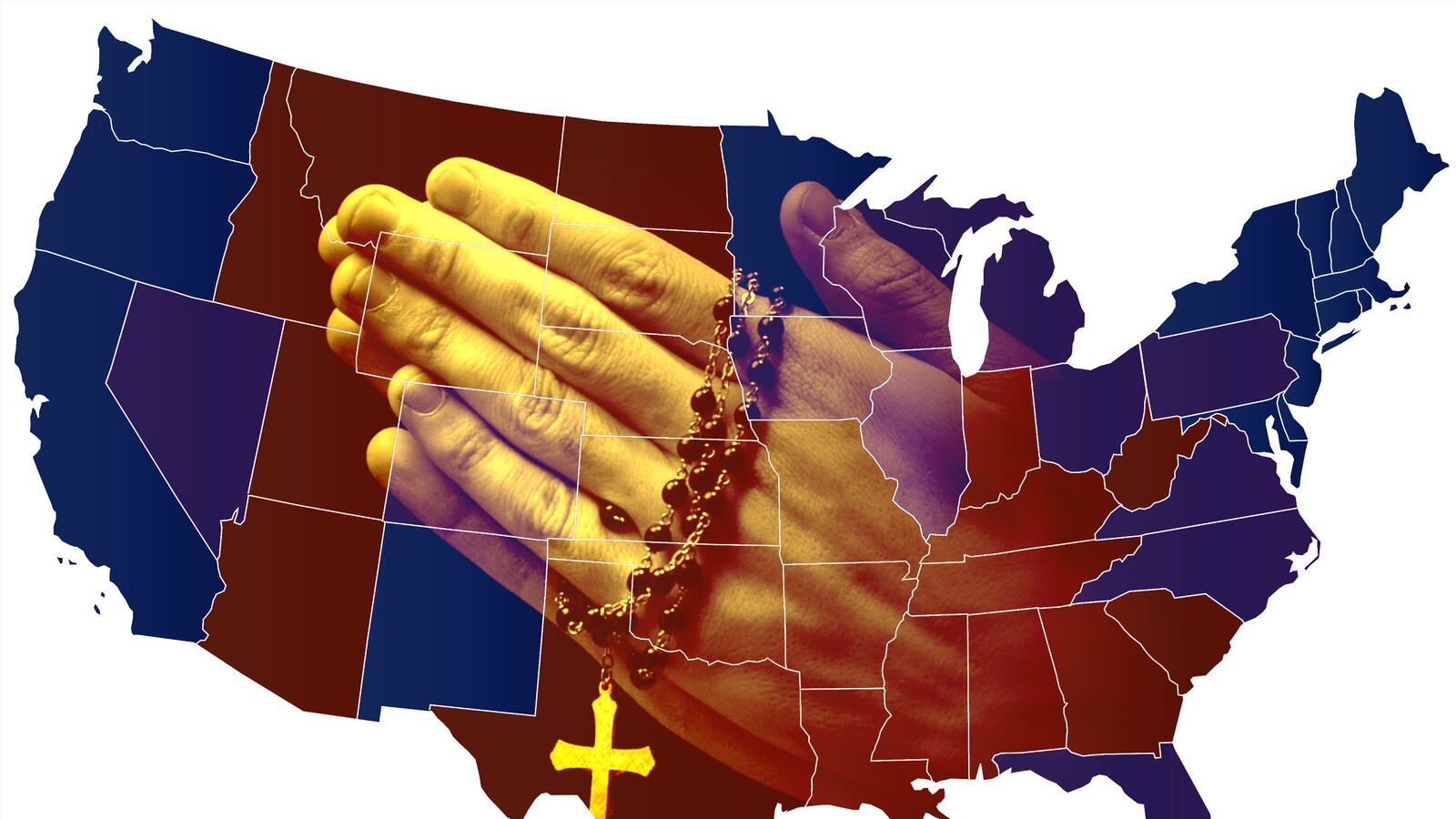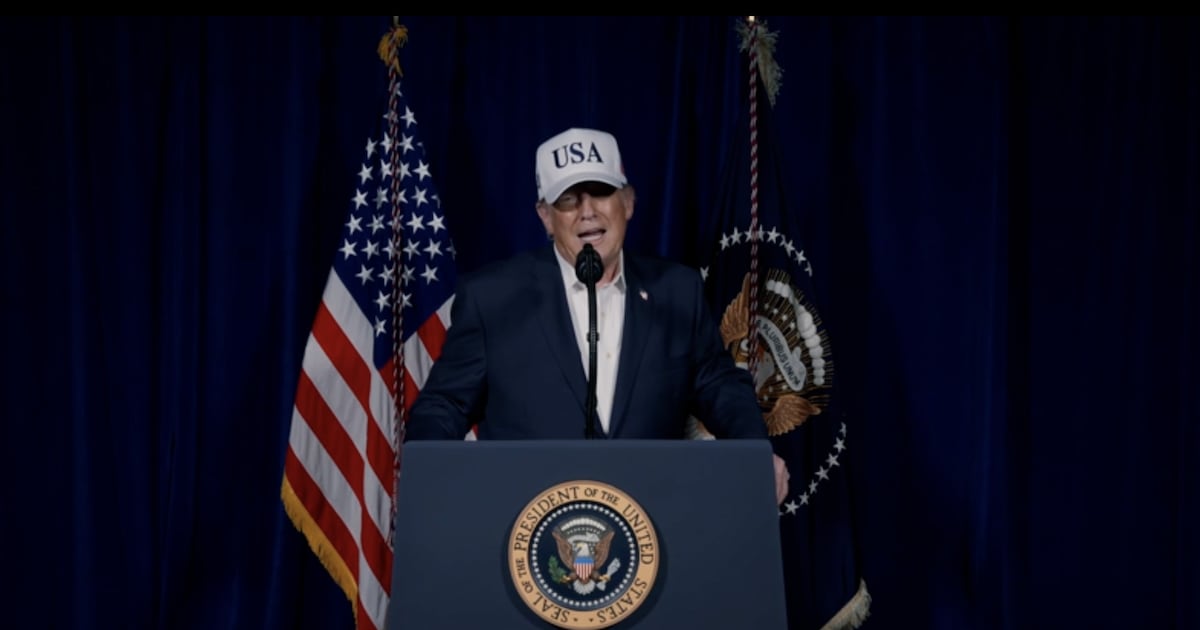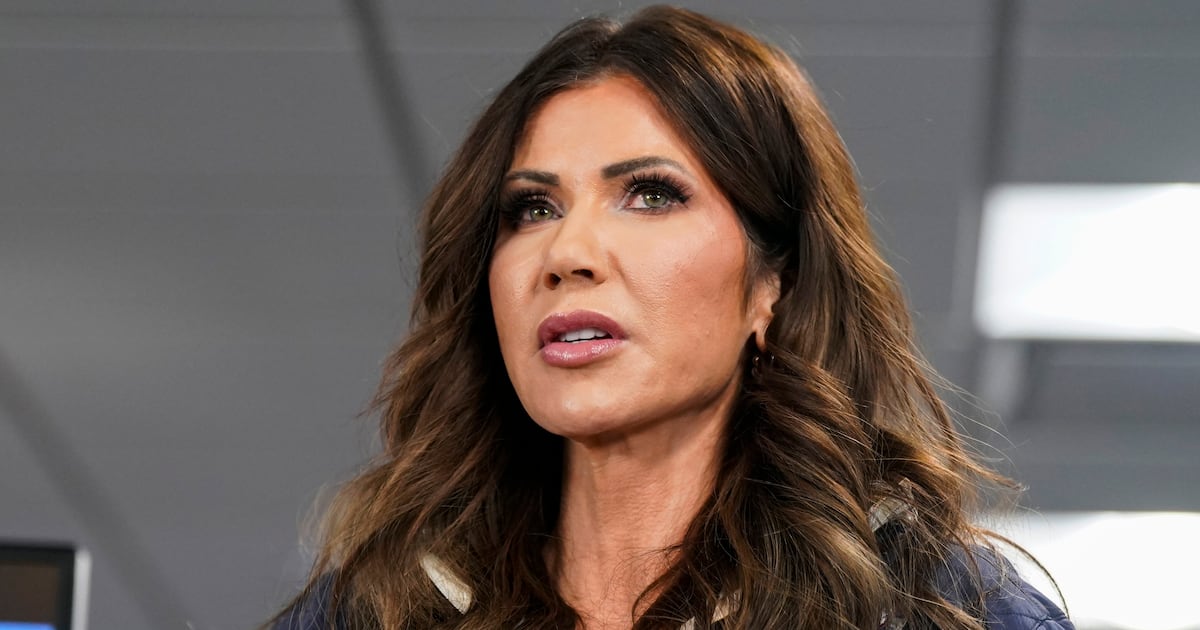White evangelicals turned out in large numbers and voted overwhelmingly Republican in the 2014 midterms, and it wasn’t because their pastors told them who to vote for or because they were lured to the polls by ballot measures banning same-sex marriage (there weren’t any of those). They even voted for Republicans who didn’t spend much time talking about abortion, homosexuality, or religion at all.
So what drove them? They voted Republican because they have been convinced that Democrats, and the Obama administration in particular, pose a dire threat to their religious freedom.
There are no such threats, actually, but several recent events have fueled the rhetoric of operatives and activists, forming a voter mobilization strategy that filled a void left by the wave of legalization of same-sex marriage across the country.
According to exit polling data analyzed by the Pew Research Center’s Religion and Public Life Project, white evangelicals comprised 26 percent of the electorate in the 2014 midterms. That figure has remained steady in midterm elections since 2006, despite a slight decline in the overall number of white evangelicals from 21 percent of the population in 2007 to 19 percent in 2012.
Nationwide in House races this year, 78 percent of white evangelicals voted Republican. In several key Senate races, white evangelical turnout outstripped the white evangelical share of the population (because turnout was depressed among other groups). White evangelicals made up half the voters in Arkansas and Kentucky and 39 and 40 percent of the voters in Georgia and North Carolina, respectively—all states where the Republican Senate candidate won.
The 78 percent figure is eight points higher than in 2006, during George W. Bush’s second term, when, one might argue, white evangelicals believed “one of us” occupied the White House.
Eight years later, the white evangelical midterm electorate was more energized for the Republican side. A Pew poll from earlier this year, which surprisingly found a growing appetite for mixing religion and electoral politics, also found that 25 percent of respondents called the Obama administration “unfriendly” to religion. That might not sound like much, but consider that today, 57 percent of white evangelicals believe the Obama administration is “unfriendly” to religion. That is up a fairly whopping 19 points from 2009—before the administration, in the Christian right’s eyes, proved itself “unfriendly” to religion by enacting the contraception coverage requirement under the Affordable Care Act, supporting marriage equality, and other perceived offenses.
References to “attacks” and “assaults” on religious freedom have become commonplace on the right, particularly when the supposed assaults are attributed to Obama policies. They also are frequently tied to LGBT people or the legalization of same-sex marriage, such as the outcry over Houston Mayor Annise Parker’s ill-conceived (and since withdrawn) subpoenas of pastor sermons, and the possible enforcement of anti-discrimination laws against the Hitching Post, a for-profit chapel in Coeur d’Alene, Idaho, which claims that performing same-sex marriage violates its owners’ religious beliefs.
One need look no further than this summer’s landmark Hobby Lobby decision to see why—even in victory—religious right advocates were able to animate white evangelicals to vote for Republicans running in House, Senate, and gubernatorial races across the country. Hobby Lobby, in which the Supreme Court ruled that the ACA’s contraception rule infringed on the religious freedom of a closely held, evangelical-owned corporation, wasn’t proof that the Supreme Court has evangelicals’ backs. Instead, it was proof the government is out to oppress them.
As David Perdue, the newly-elected Republican senator from Georgia, wrote on his Facebook page after the Hobby Lobby decision came down, “we cannot expect the judiciary alone to stop Obamacare and bad regulations. We need stronger leadership from the legislative branch.”
The notion that religious freedom of American Christians is under attack is part of what sociologist Lydia Bean, author of The Politics of Evangelical Identity, calls the formation of a political identity that is framed less by partisan electoral politics than it is by a “narrative of Christian nationalism.” The pervasive Republicanism of white evangelicals is not the result of pastor endorsement of candidates, Bean argues, but rather is attained through the development of “good” Christian identity via a “24/7 narrative” that “liberals basically destroyed America and conservatives have to take it back.” The hard work of shaping voters, says Bean, takes place in those settings—often outside of churches—rather than in explicit get-out-the-vote drives.
The much-ballyhooed Pulpit Freedom Sunday, during which pastors across the country unabashedly flout an Internal Revenue Service rule barring tax-exempt organizations, including churches, from endorsing candidates if they wish to maintain their tax exempt status, is evidence of this zeitgeist. It’s less a get-out-the-vote drive than a provocation, one that serves to drive a narrative of government and secularist oppression of religious Americans. And it dares the Obama administration to crack down, practically salivating at the rush of sympathetic publicity that would ensue in the conservative media.
When the atheist group Freedom from Religion Foundation sued the IRS in 2012 to prompt it to enforce the rarely imposed rule, it discovered a document outlining the IRS process for review of churches’ alleged electioneering activities. Satisfied that the IRS was enforcing its own rules, FFRF withdrew its lawsuit.
But soon enough, Ralph Reed of the Faith and Freedom Coalition, echoing a meme that rippled through conservative media, protested that there was a “secret legal agreement between the Internal Revenue Service and a radical atheist organization that portends increased scrutiny and harassment of churches and Christians, potentially infringing upon their First Amendment rights of freedom of speech and association.”
It’s these narratives that propel white evangelical voters to the polls. Wins such as Hobby Lobby, far from leading them to adopt a more relaxed posture, merely prove the need for more work. So do losses, such as the widespread legalization of same-sex marriage. They result in a reenergizing of activists, not their retreat. They may recognize that they’re losing the same-sex marriage fight, but on this one, they can’t lose either way.






